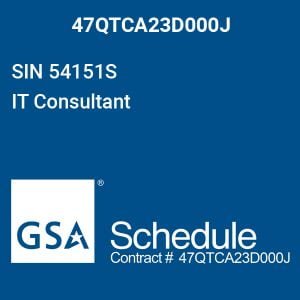Most established businesses these days are using hybrid cloud services, especially since the pandemic in 2020. While cloud services are more secure now than ever before, cloud security generally still needs to evolve. We are trying to get there with the help of rigorous practices and ideas such as the Zero-Trust policy, so the future for cloud security is bright.
The best cloud security methods have to be detailed, rigorous, and comprehensive. This is because more and more organizations now trust sensitive information to cloud security, and any breach can cost the business massively. This will prevent the adoption of the remote-working model which the world currently needs.
The Need For Detailed, Rigorous, And Comprehensive Cloud Security
Cloud security is of utmost importance in the world now that hybrid cloud services have become common and businesses have shifted to flexible and remote work. It is essentially the need of the hour to have detailed and rigorous cloud security to prevent data breaches.
Cloud security is currently at its peak and will only continue to increase. However, as the security measures improve, the threats to cloud security become even more sophisticated. Therefore it is necessary to continuously evolve cloud security so that the security providers can stay a step ahead of the attackers.
Secondly, the problem of internal threats and data breaches from within the organization has still not been tackled effectively. This is why it is crucial to implement security measures such as the zero-trust policy, which ensures user authentication and prevents everyone in the organization from gaining access to everything.
Lastly, a significant part of hybrid cloud services includes the public cloud. While there is an assumption that the service provider will deal with the security on the public cloud, it is essential for the organization to play a role. Therefore improving cloud security models to be detailed, rigorous, and comprehensive will enable tightened security on both ends.
Unlock the future of intelligent applications with our cutting-edge Generative AI integration services!
Present Challenges For Cloud Security
To improve cloud security for all organizations, we must also be aware of the different challenges faced by cloud security in the present day:
Data Loss And Breaches
Cloud security exists to protect an organization’s data from attacks and deletion. If sensitive information is leaked or data is arbitrarily lost during routine work, the organization will be apprehensive in using cloud services and will incur a loss. Data breaches are still quite common, even though they are not as drastic as they once were.
Access Point Control
Cloud services can be accessed through any device, making it a double-edged sword. You can work flexibly, and it is not limited to a physical space or a device, but it is easy for third parties to access data from an insecure device. Therefore, organizations need to constantly limit the access points, which compromises the flexibility of a workplace.
Lack of Visibility
Lack of visibility for the organization on the user’s end can lead to misuse of company data, even if it is unintentional. It also applies to third parties gaining access to a user’s account with the user’s credentials. Currently, it is difficult for the organization to determine if an unauthorized user is on the cloud since the credentials can automatically give them access. Therefore the need for more detailed measures for cloud security is imperative.
Recognizing Data Breaches
There is limited visibility on cloud platforms. It is also difficult for companies to recognize that their data has been breached since putting up targeted alerts is a complex mechanism. Companies have to spend extended time trying to recognize data breaches and determine what resources have been compromised. So a comprehensive security system will allow for targeted alerts in these situations, enabling companies to locate attacks and recognize data breaches easily.
-
 GSA HACS Principal Security Architect$153.15
GSA HACS Principal Security Architect$153.15 -
 GSA IT Consultant$81.12
GSA IT Consultant$81.12 -
 GSA Cloud Senior Microservices Consultant$129.41
GSA Cloud Senior Microservices Consultant$129.41
Practices To Implement
Cloud security has a long way to go even now. There are certain practices that organizations need to implement to have a comprehensive security system for their cloud network. Here are some of the practices they can consider:
Best Cloud Security Is Detailed in Comprehensive Planning
When moving your business to a cloud service, you must first consider what applications and services you will be moving to the cloud. Examine and assess each service thoroughly and ensure that they meet the security standards set by the cloud service provider. Some applications and data are easier to move to the cloud than others. Some need further evaluation, reconfiguration, and modification before being securely shifted to a cloud system.
Also, determine the clientele and users who will access each service you have moved to the cloud. The security measures for each service will depend on the sensitivity of the data and the users using it.
Controlling Data Access
Every employee needs access to every bit of data you have put up. Ensure that employees can only access the information relevant to them to contain possible security breaches to a single area, which will be easier to isolate than an attack on everything.
Automation
Implement automated monitoring of users and activities on your cloud so that any suspicious or irregular activity can immediately be picked up and analyzed. Even if the system picks up on something ordinary, you will be able to prevent data breaches, so it is worth the risk!
Multi-Factor Authentication
Stolen credentials have been the bane of unauthorized access to systems for years now, which is why multi-factor authentication is necessary for any cloud platform. Not only will users need their username and password, but they will also need another device such as a smartphone or access to their own email to ensure that it is not an impostor trying to gain access to sensitive data.
Continuous Monitoring
Monitor the cloud’s resources continuously and vigilantly with the help of automated systems to prevent any irregular activity. Analyze all the activity of regular days to create regular functioning patterns to be aware of irregular traffic movement or security breaches. Monitoring is essential on both the company’s end and on the cloud service provider’s end, the combination of which makes for a detailed security system.
Contact us to gain strategy and solutions for the Best Cloud Security Is Detailed. Further blogs within this The Best Cloud Security Is Detailed, Rigorous, And Comprehensive category.

